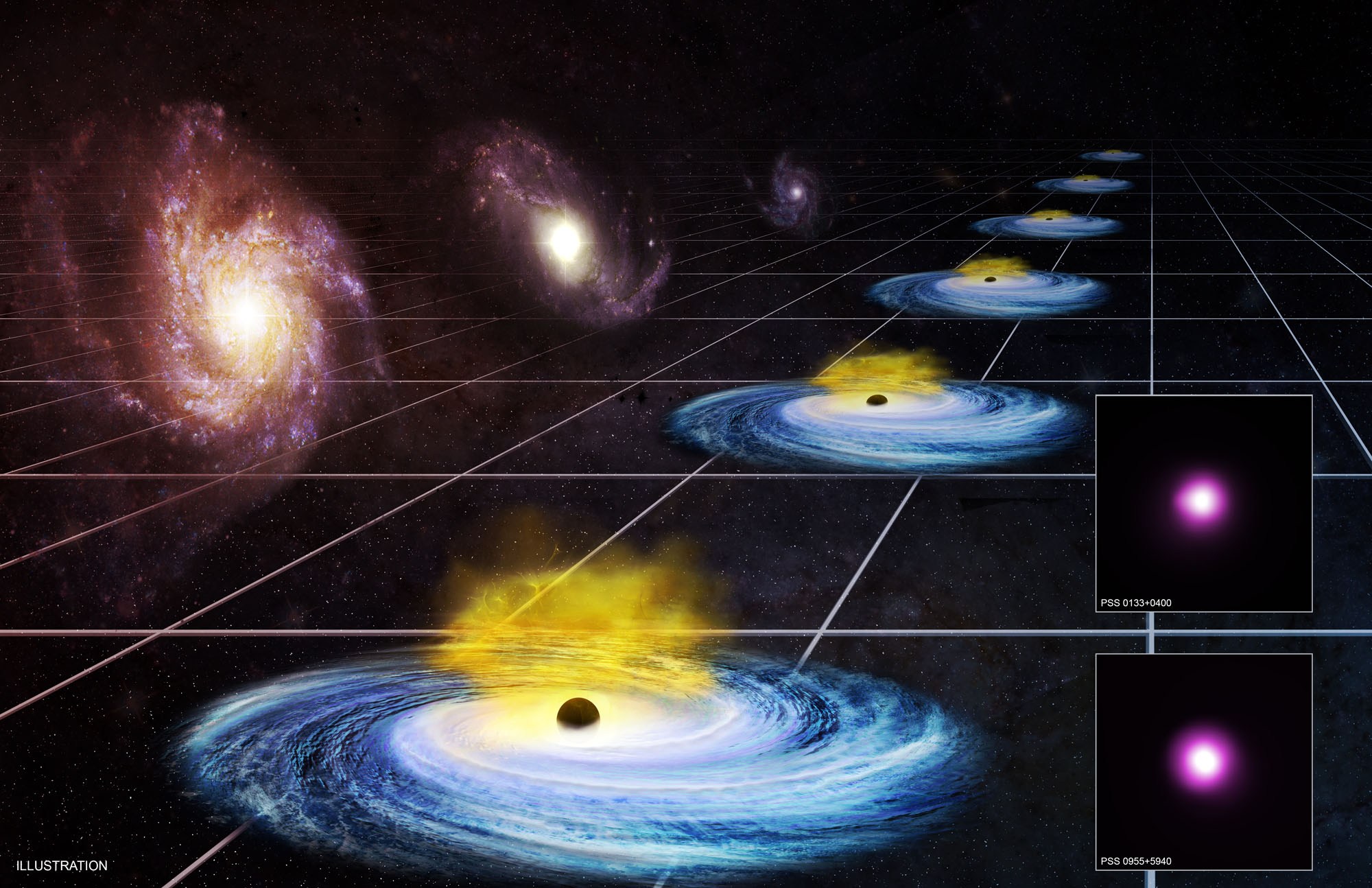Dark energy changes over time
Dark energy is thought to be the reason why the universe continues to expand faster and faster, instead of contracting. Yet researchers still don’t have a well-founded theory on what exactly this mysterious form of energy is. If current theories of the universe are correct, dark energy must account for up to 72 percent of the total matter of the universe today.
But what about in the past? Current theory assumes that dark energy had little influence early on. So, the expansion of the universe must have changed significantly over time. Now, with the help of NASA’s Chandra X-ray Observatory and ESA’s XMM-Newton, researchers have verified this hypothesis with a new method using quasars. Quasars, active galactic nuclei, are so far away from us that they are basically illuminating the past for us.
In their work, researchers measured 1,598 quasars. They quantified the UV and X-ray radiation of the objects and set this in relation to their distance. The result is a statement on the rate of expansion of the universe and it gives a result that had already been found using other methods: the effect of dark energy was significantly weaker many billions of years ago than today.
